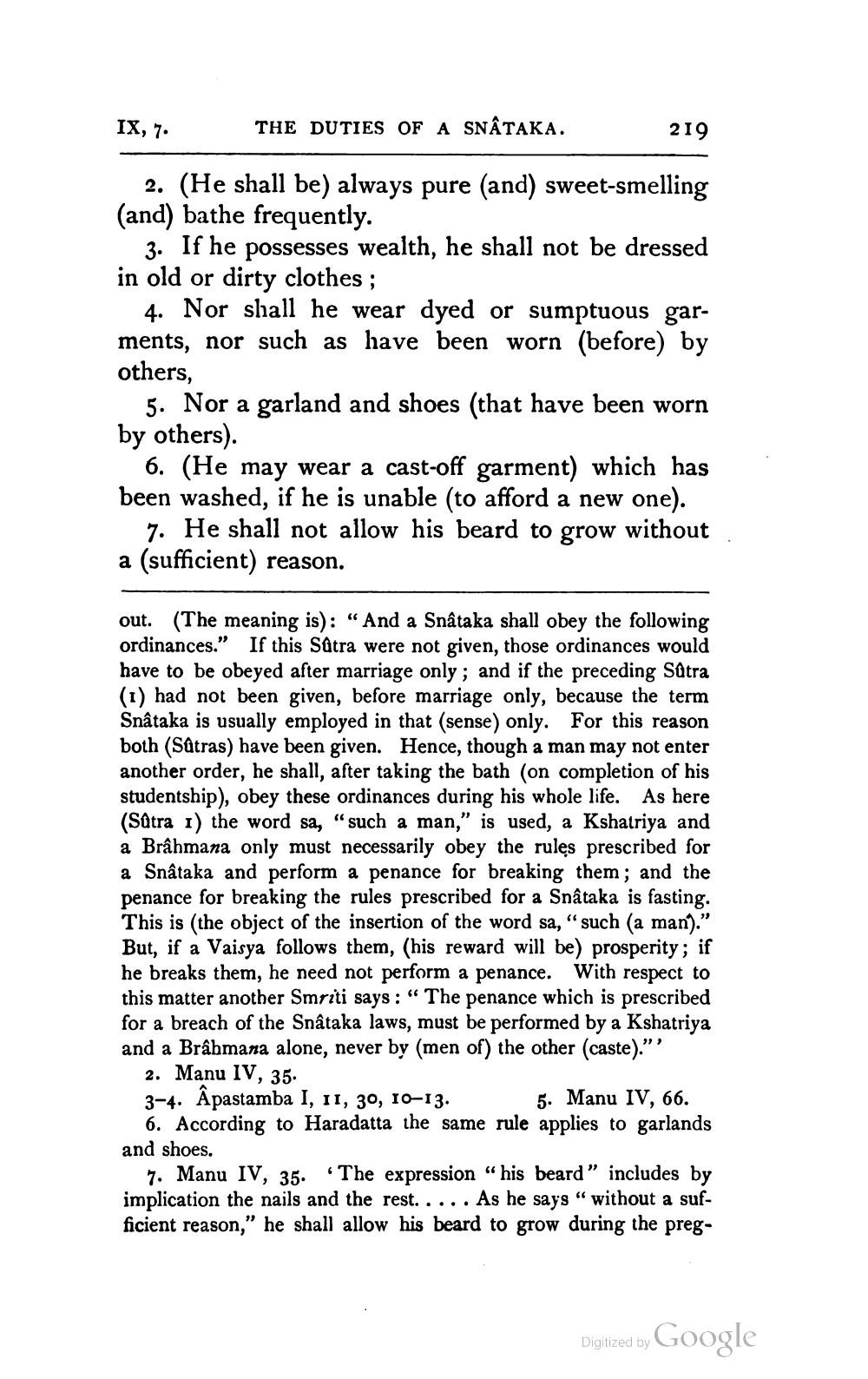________________
IX, 7.
THE DUTIES OF A SNÂTAKA.
219
2. (He shall be) always pure (and) sweet-smelling (and) bathe frequently.
3. If he possesses wealth, he shall not be dressed in old or dirty clothes ;
4. Nor shall he wear dyed or sumptuous garments, nor such as have been worn (before) by others,
5. Nor a garland and shoes (that have been worn by others).
6. (He may wear a cast-off garment) which has been washed, if he is unable (to afford a new one).
7. He shall not allow his beard to grow without a (sufficient) reason.
out. (The meaning is): "And a Snâtaka shall obey the following ordinances." If this Satra were not given, those ordinances would have to be obeyed after marriage only; and if the preceding Sûtra (1) had not been given, before marriage only, because the term Snâtaka is usually employed in that (sense) only. For this reason both (Sätras) have been given. Hence, though a man may not enter another order, he shall, after taking the bath (on completion of his studentship), obey these ordinances during his whole life. As here (Sūtra 1) the word sa, "such a man," is used, a Kshatriya and a Brâhmana only must necessarily obey the rules prescribed for a Snataka and perform a penance for breaking them; and the penance for breaking the rules prescribed for a Snâtaka is fasting. This is the object of the insertion of the word sa, “such (a man)." But, if a Vaisya follows them, (his reward will be prosperity; if he breaks them, he need not perform a penance. With respect to this matter another Smriti says: “ The penance which is prescribed for a breach of the Snâtaka laws, must be performed by a Kshatriya and a Brahmana alone, never by (men of) the other (caste).”'
2. Manu IV, 35. 3-4. Âpastamba I, 11, 30, 10-13. 5. Manu IV, 66.
6. According to Haradatta the same rule applies to garlands and shoes.
7. Manu IV. 35. The expression “his beard” includes by implication the nails and the rest. . . . . As he says "without a sufficient reason," he shall allow his beard to grow during the preg
Digjized by Google




